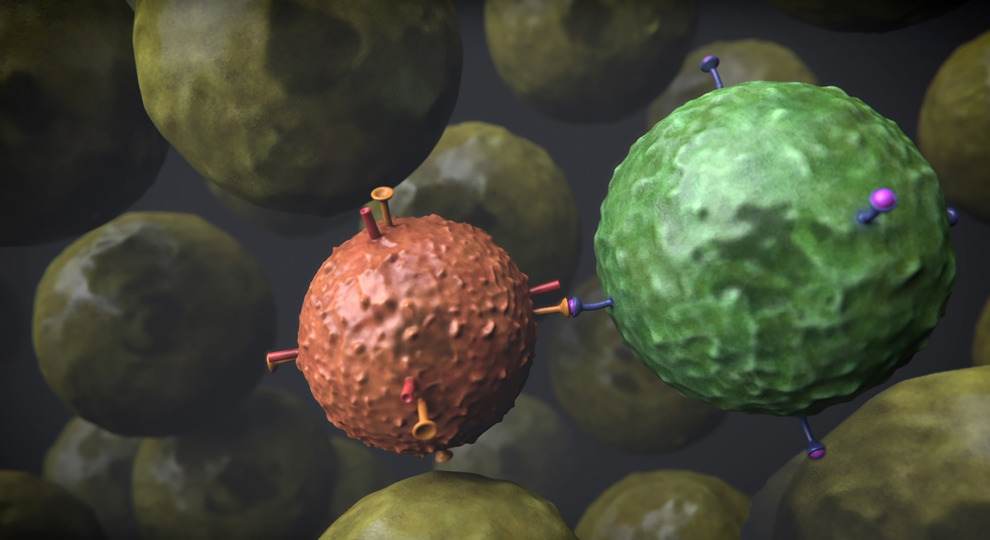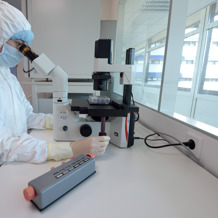New technique to detect T cells that recognize a patient’s tumor
2 Jan 2023 17:00
Researchers at the Netherlands Cancer Institute have developed a new technique that can map out molecules on the tumor cells in individual cancer patients that are recognized by T cells. This new technology is an important step toward personalized immunotherapy.

Current types of immunotherapies already make use of a patient's own immune cells (T cells) to destroy tumors, including treatment with checkpoint inhibitors or TIL therapy.
But these treatments do not work in every patient, partly because not all T cells are capable of destroying cancer cells. "It is difficult to direct the right T cells to the right molecules on a tumor," Wouter Scheper explains. This new technology might offer a solution. The technique can help researchers map out all DNA mutations in a patient’s tumor. They then present these neoantigens to T cells taken from the patient, using certain cells in a culture bottle in the laboratory.
The T cells that can recognize one or more of these mutations from the tumor immediately get to work and start destroying the cells presenting the neoantigen. The researchers developed a method to analyze on a large scale which of the often many mutations in a tumor can actually be recognized by T cells. ‘These neoantigens are the proverbial needle in the haystack that you need when you want to offer targeted therapy using immunotherapy. And this technology allows us to find these neoantigens,' says Scheper.
The technology could lead to several new treatments. 'In theory, you could use this technology to develop a vaccine that instructs the body to activate the type of T cells that can recognize and destroy the tumor,' Scheper says. 'A vaccine like that wouldn’t be given as a precaution, but only to people who have been diagnosed with cancer.' Another possibility of this new discovery is personalized cell therapy against cancer. The identified neoantigens could be used, for example, to specifically isolate the T cells that can recognize the neoantigens from a patient's population of T cells.
These isolated T cells could potentially be multiplied in the lab to form an army of specialized immune cells that cells could then be administered back to the patient for a personalized form of immunotherapy. 'This is a form of immunotherapy we are currently setting up at the NKI,' Scheper explains.
 nl
nl
 Nederlands
Nederlands
